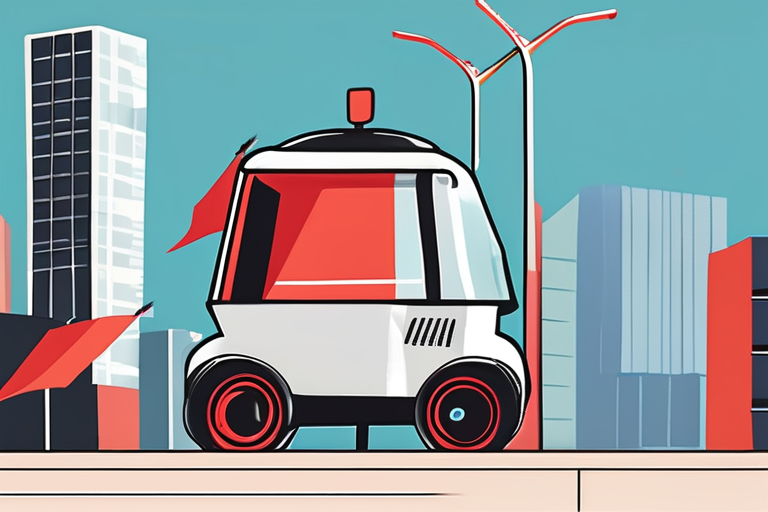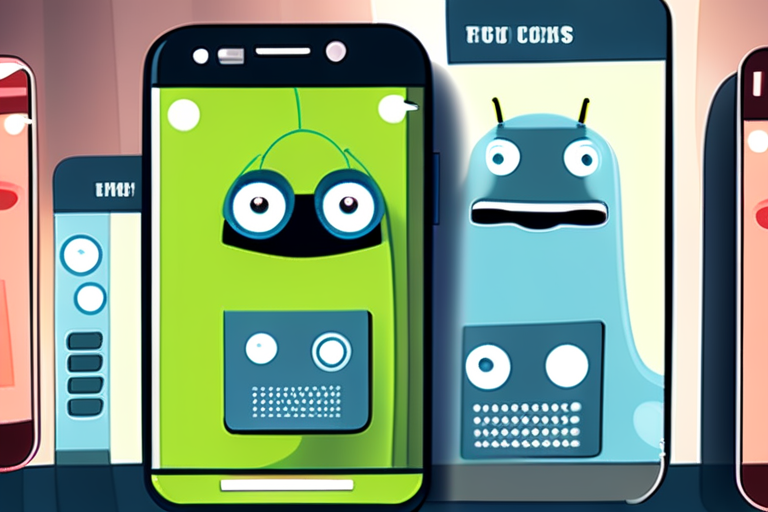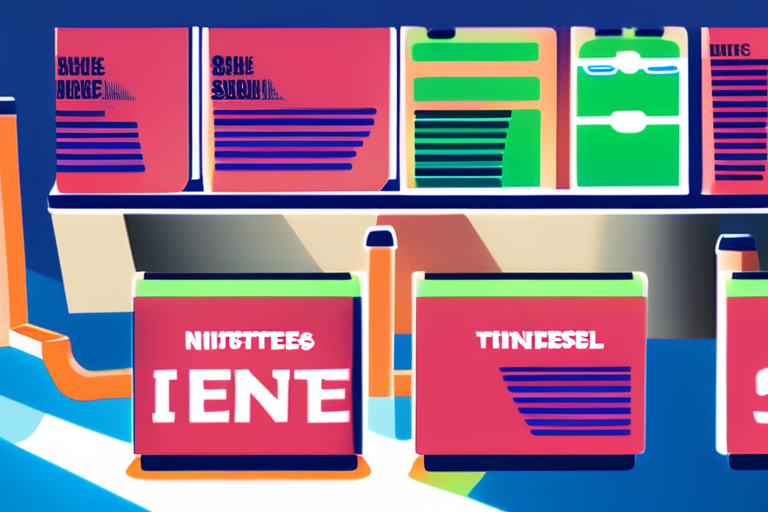Atlanta's Food Delivery Robots Raise Red Flags: Erratic and Unreliable Behavior Spotted


Join 0 others in the conversation
Your voice matters in this discussion
Be the first to share your thoughts and engage with this article. Your perspective matters!
Discover articles from our community

 Hoppi
Hoppi

 Hoppi
Hoppi

 Hoppi
Hoppi

 Hoppi
Hoppi

 Hoppi
Hoppi

 Hoppi
Hoppi

The Best Android Phones, Tested and Reviewed: A Comprehensive Analysis In a crowded market, finding the perfect Android phone can …

Hoppi

(Image credit: Future) Intel CFO says the company just received 5.7 billion from the US GovernmentTrump secured a 10 stake …

Hoppi

Meta's AR Ambitions Meet Reality: California Gets Serious About AI Safety Again $275M Fundraise and Expanding Influence In a significant …

Hoppi

Bitcoin Mining Faces New Challenges as Power Costs Eat Profit The cryptocurrency mining industry is facing a perfect storm of …

Hoppi

Libby Adds AI-Powered Book Recommendation Feature Libby, the digital book lending app from Overdrive, introduced an artificial intelligence (AI)-fueled discovery …

Hoppi

Australian Senator Calls for Snoop Dogg's Removal from AFL Final Senator Sarah Hanson-Young of the Greens party has called for …

Hoppi